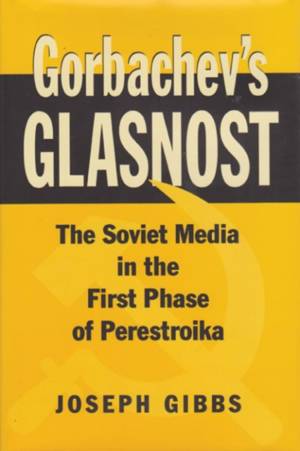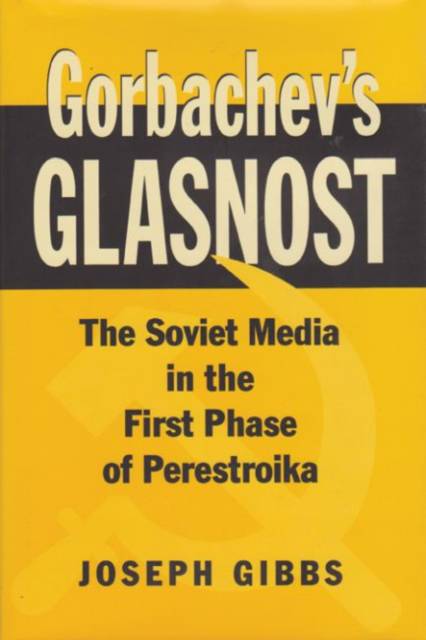
Je cadeautjes zeker op tijd in huis hebben voor de feestdagen? Kom langs in onze winkels en vind het perfecte geschenk!
- Afhalen na 1 uur in een winkel met voorraad
- Gratis thuislevering in België vanaf € 30
- Ruim aanbod met 7 miljoen producten
Je cadeautjes zeker op tijd in huis hebben voor de feestdagen? Kom langs in onze winkels en vind het perfecte geschenk!
- Afhalen na 1 uur in een winkel met voorraad
- Gratis thuislevering in België vanaf € 30
- Ruim aanbod met 7 miljoen producten
Zoeken
€ 42,95
+ 85 punten
Omschrijving
Glasnost, most commonly translated into English as "openness," was a key concept of Mikhail Gorbachev's administration as general secretary of the Communist Party of the Soviet Union. This adapted tool of Leninist media control became not only a part of perestroika, Gorbachev's plan to rejuvenate Soviet ideology during the 1980s, but also an independent concept that redefined how the USSR's media were employed as an instrument of leadership.In Gorbachev's Glasnost: The Soviet Media in the First Phase of Perestroika, author Joseph Gibbs traces the development of glasnost as both concept and policy, from the Leninist idea of "criticism and self-criticism" to Gorbachev's attempt at modernizing and reinterpreting that doctrine to fit his own political goals and aspirations.Using analysis drawn from primary sources and interviews, Gibbs examines how glasnost changed in definition and application between 1985 and 1988. Gorbachev's Glasnost shows how official reportage coincided with Gorbachev's political agenda and how, in his capacity of general secretary, he expanded media freedoms in order to employ the press against his enemies. Subsequent chapters detail how, with each move to broaden the power of glasnost to meet Gorbachev's political needs, the media simultaneously gained strength and the opposition found an avenue to be heard, irrevocably changing Soviet society and politics.Gorbachev's Glasnost provides a clear, Western interpretation of what was perhaps the Soviet Union's most influential and controversial reform. Anyone interested in the events that led to the fall of communism and the breakup of the Soviet Union, as well as those interested in the effects of mass media on politics and culture, will find it intriguing and solidly researched.
Specificaties
Betrokkenen
- Auteur(s):
- Uitgeverij:
Inhoud
- Aantal bladzijden:
- 168
- Taal:
- Engels
- Reeks:
- Reeksnummer:
- nr. 9
Eigenschappen
- Productcode (EAN):
- 9780890968925
- Verschijningsdatum:
- 1/08/1999
- Uitvoering:
- Hardcover
- Formaat:
- Genaaid
- Afmetingen:
- 164 mm x 244 mm
- Gewicht:
- 458 g

Alleen bij Standaard Boekhandel
+ 85 punten op je klantenkaart van Standaard Boekhandel
Beoordelingen
We publiceren alleen reviews die voldoen aan de voorwaarden voor reviews. Bekijk onze voorwaarden voor reviews.









